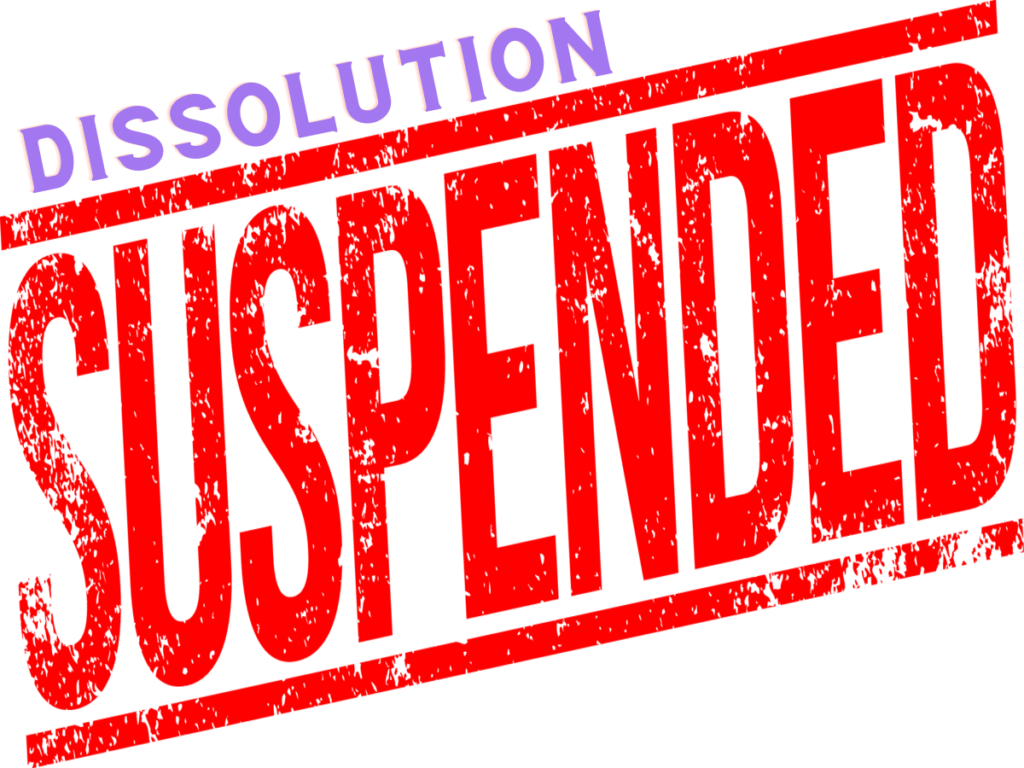Has your company had strike off action suspended? Striking off a company or dissolving from the companies register is one of the most straightforward methods to terminate a company. You complete a DS01 form, pay the fee and submit the form and fee to Companies House. Or if you’re less organised, You might fall behind on your yearly financial statements or other statutory filings, and Companies House will begin a legal striking off procedure if this is the case. This article discusses how to strike off a company if it has been suspended
If your business has no outstanding liabilities, it should be approved without any undue delays.
However, the application may be objected to by creditors or other interested parties within two months after the company dissolution application is filed.
Why is it possible to suspend a voluntary or compulsory strike off?
These are the most common reasons:
HMRC can object to the voluntary strike off in order to pursue any outstanding taxes or returns that haven’t been submitted; suppliers can challenge the process if there are any unpaid invoices remaining, and consumers can stop things if they claim that products haven’t been delivered or work hasn’t been completed.
You may receive a letter from Companies House stating that your company will be struck off within 2 months if no objections are received, but your company is still listed on the Companies House register. They may have suspended strike off action because they have received an objection to your application for strike off.
A company strike off suspension is inconvenient and distressing, but it’s an important component of any checks and balances mechanism to allow creditors’ to be heard and avoid corporate directors attempting to close a business without accounting for their outstanding loans or taxes.
If Companies House decides to hold up the objection of your creditors or HMRC, then your strike-off application will be suspended, and your company will remain active.
What should I do if strike off action suspended?
Your next step will be determined by the circumstances surrounding why Companies House has not struck your firm off:
- Find out who opposed dissolution and why
The first step in determining who opposed the strike-off is straightforward.
You may reach out to them and they will be able to tell you what the issue is and who is responsible for it. This is crucial since only then will you be able to resolve the specific problem that prevents your company strike off from being approved.
If HMRC has stopped the strike off, you’ll need to discover which taxes are still outstanding and for how long. It’s possible that if HMRC is the objecting party, they will send you a letter outlining their complaint as well as possible solutions.
If another creditor challenges your strike off, you’ll need to find out the specific debt or reason so that you can handle it successfully.
- Clear all company debt
If the firm has an outstanding debt to company creditors, the difficulty becomes more hard to deal with and the purpose of striking off as a method of shutting down a business is called into question.
- Pay off your debt
If your company strike off application has been suspended due to outstanding creditors then you could settle any debts the company owes and then apply again.
This removes the reason for the objection so there should now be nothing stopping it from proceeding. This depends on the size of the debt and the company’s ability to pay it.
In this situation, if you make a payment to one creditor that has objected but not the other creditors, it would be considered a preferential payment and might have personal ramifications for directors.
- Liquidate your company
Striking off your company comes with certain benefits, but it is only applicable to firms that fulfil particular requirements to close.
If you don’t meet these criteria, it does not imply that the firm cannot be closed. It simply indicates that you should consider seeking another approach to closing the business, such as liquidation.
This is when a licensed insolvency practitioner takes over the closing of your firm and manages any assets and past due obligations. If your firm has liabilities, liquidation rather than dissolution is usually the best approach to go for company closure.
For free confidential advice contact Company Doctor on 0113 237 9503 or visit us at www.companydoctor.co.uk
REMEMBER – Before a firm may be struck off and pay off debts from company bank accounts or funds, it must be inactive for three months.
If you want to pay off outstanding bills and resume your dissolution, you should first seek expert assistance to ensure that you fulfil the requirements and aren’t wasting your time. Companies House will not strike off unless comply with the criteria.

